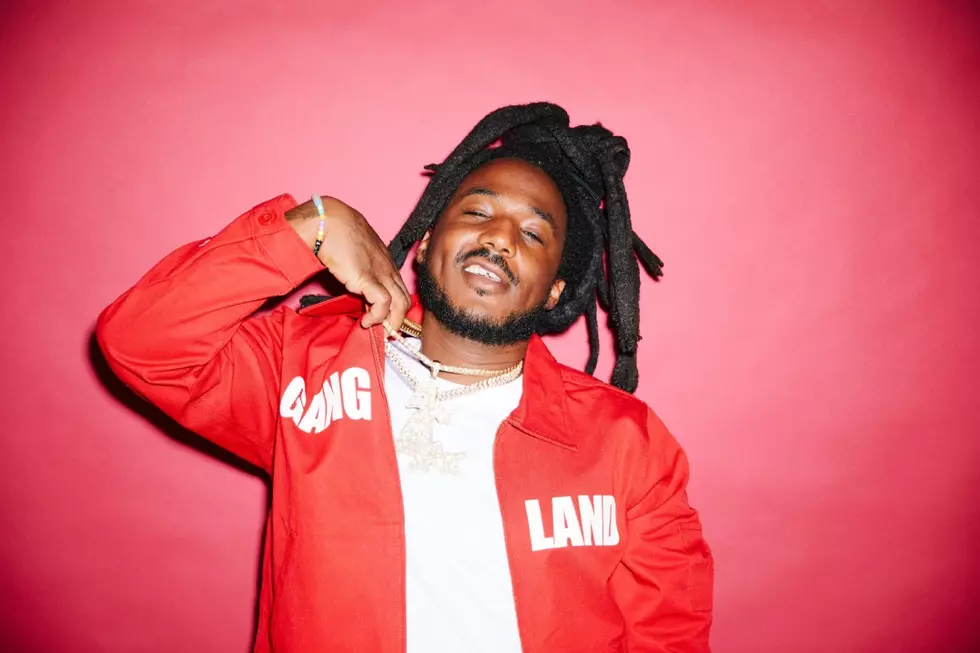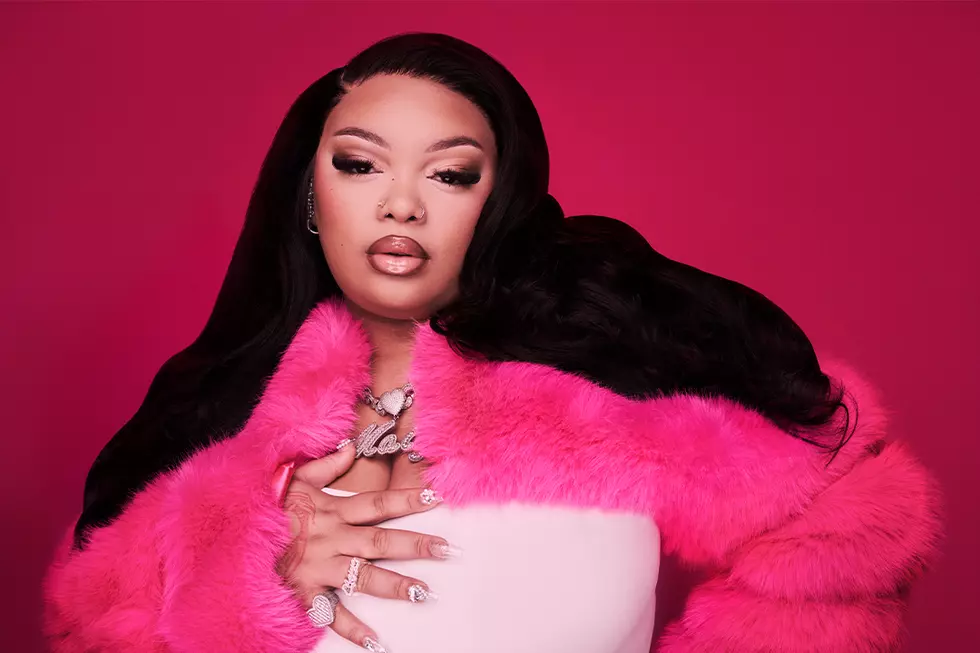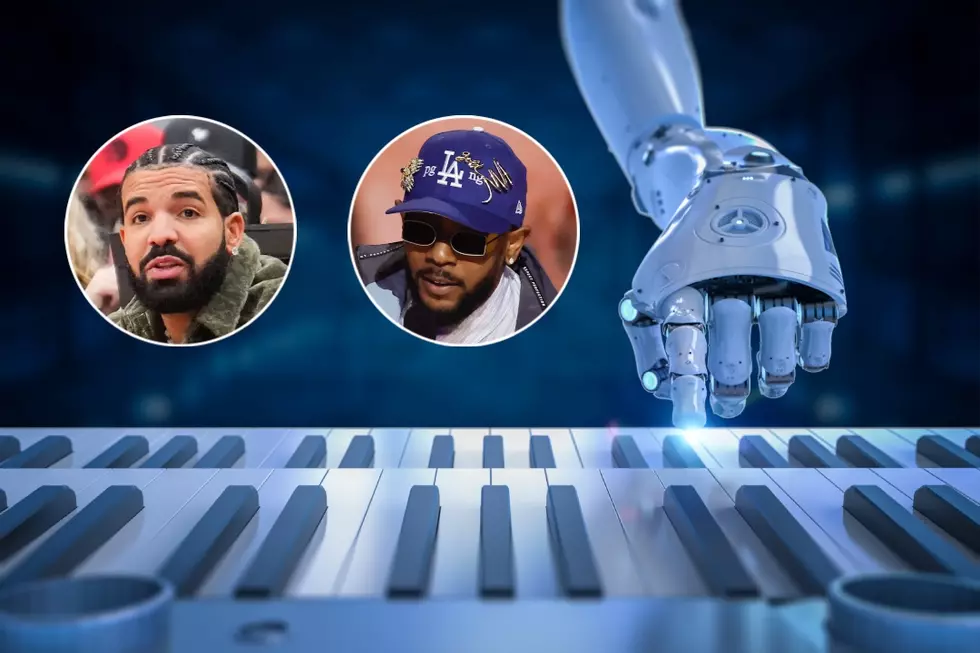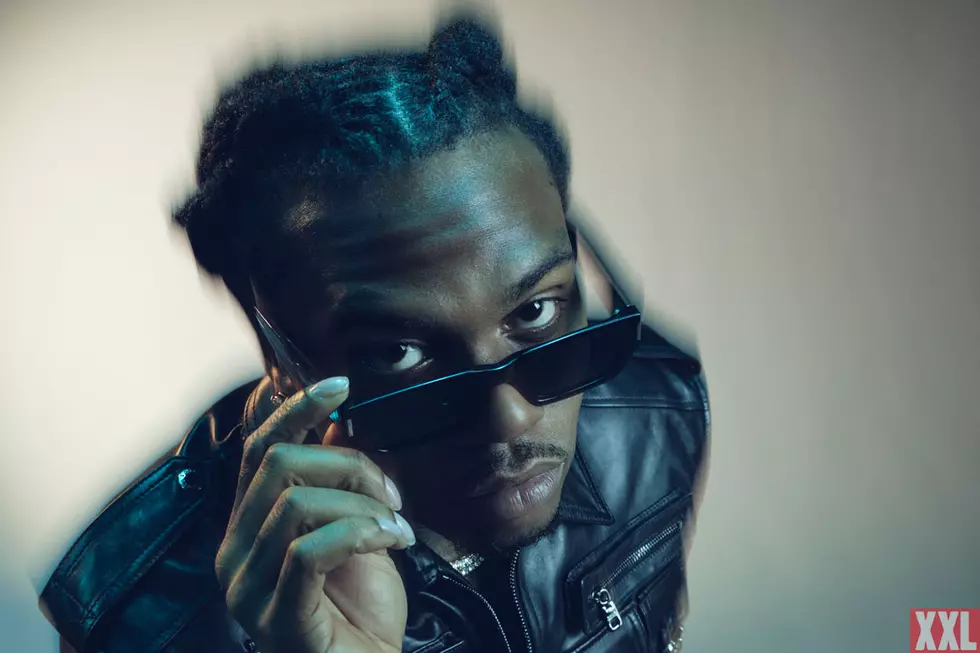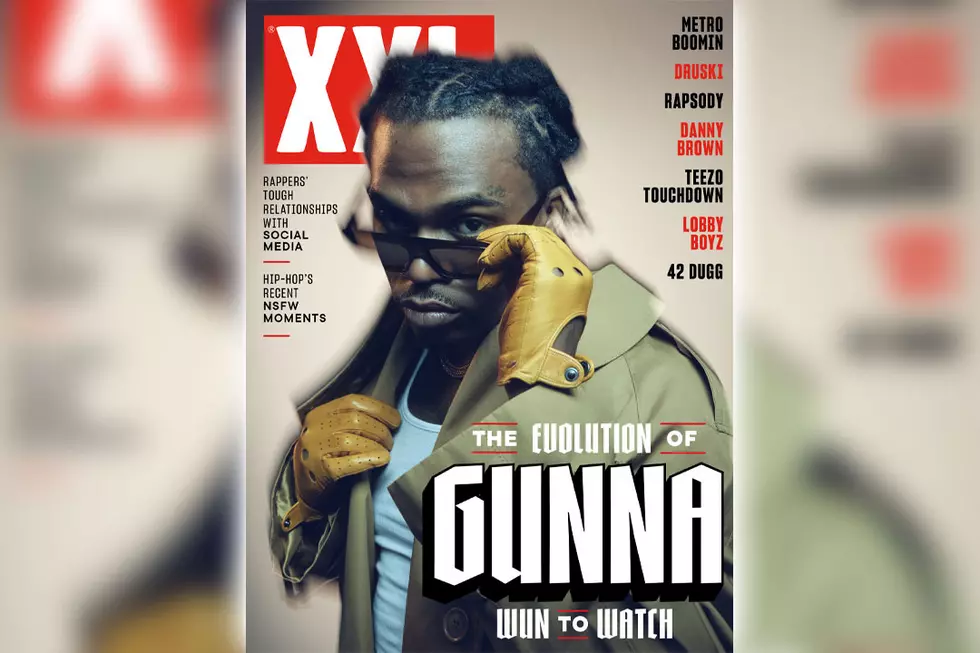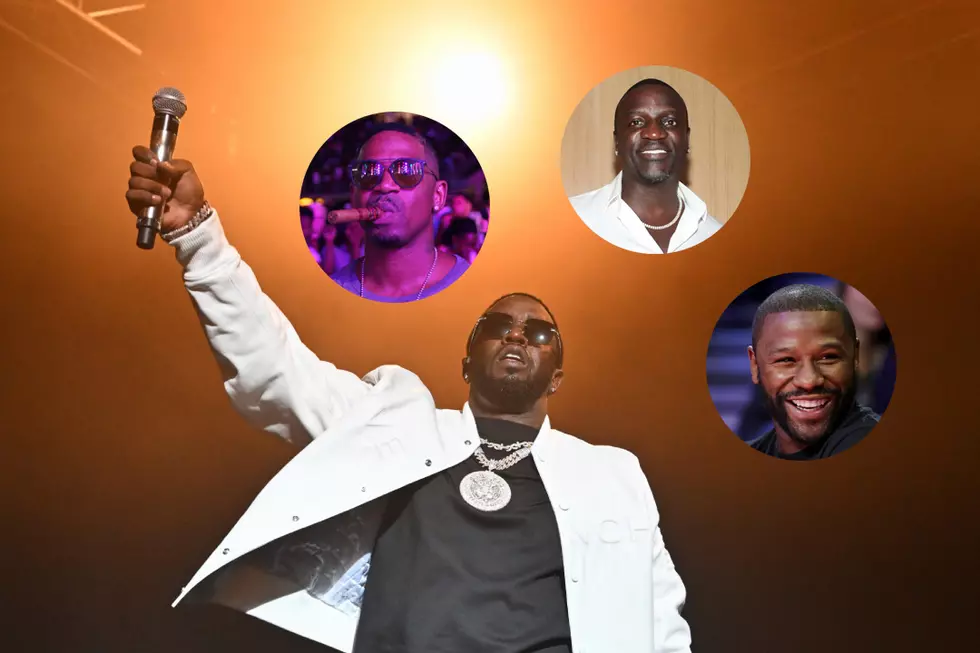
Mistah F.A.B. Cleans His Conscious With ‘Son of a Pimp 2′ Album and Explains Why the Bay Area Represents the Different Guys
The Bay Area is having a huge resurgence right now. From upstarts to veterans, the movement is going strong. E-40 has another Billboard Hot 100 hit with his feature on Yo Gotti's "Law" and is gearing up to drop two more albums. The batch of young spittas like Nef the Pharaoh, Ezale, Kool John and Kamaiyah are beginning to hit strides, G-Eazy is becoming a superstar and IAMSU! is one of the most consistent rappers in hip-hop right now. But there's one of the OGs in the the Bay who's not to be forgotten: Mistah F.A.B.
F.A.B., born Stanley Petey Cox, is one of the most important figures on the West Coast. He's a legend in the Bay as an artist, battle rapper and activist. He has worked with everyone from his area such as Too $hort, E-40, Mac Dre, Keak Da Sneak, Turf Talk, G-Stack and plenty more.
A little over a decade ago, he released Son of a Pimp in 2005, his second album and a Bay Area classic. Today (May 27), the 34-year-old rhymer is back with the follow-up, Son of a Pimp 2, and the new album looks like an all-star lineup. Kendrick Lamar, Snoop Dogg, Boosie BadAzz and Lupe Fiasco, among others make guest appearances with Pete Rock supplying production. The most amazing thing about the project is that F.A.B. is doing this completely as an independent artist.
While in New York City, Mistah F.A.B. stops by the XXL office to discuss Son of a Pimp 2, his growth from the first installment, the Bay Area and its position in hip-hop.
XXL: What can we expect from Son of a Pimp 2?
Mistah F.A.B.: The second installment is the emancipation of Mistah F.A.B., the artist, the growth of family, the person. It implements my thoughts and my ideology of life right now based off everything that I’ve been through in the past 10 years. You know, they say your first project is always your best project because it’s everything in your life up until that point and you put it all out. So now, after going through label situations, being involved in many different politics of the industry, the ups and downs, now to be refurbishing my identity through music again, through this project, so it’s goin’ be dope.
What viewpoints over the last 10 years are you addressing on the album?
A 22, 23 years old, Mistah F.A.B. is carefree. You’re only concern in the world is where you goin’ spend your money at. You don’t really have any other thoughts or any cares other than that. You don’t realize your power of influence and what you’re inoculating in the minds of the youth [and] how far that goes. We created a culture that we were actually living and to us, it was just everyday life, but to others, it was a blueprint to live [by], to identify with. So, in hindsight, we’re able to look back at that and say, "Damn, we really led up to a lot of the delinquency of a lot of youth."
At that time, we just weren’t conscious, and even if you were, you really didn’t care. I was like, "I don’t care." As you get older, I’ve had a child since then, so now I’m more conscious of what I’m saying in its entirety like through a whole project. I’m more like, Wait a minute, hold on, my daughter might be listening to this. Would I want somebody telling my daughter to do something like that? And it doesn’t make me the parent-type rapper or the preachy-type rapper, but I definitely put a little more thought into the message that I’m spewing and how it’s conveyed to the listeners.
That’s interesting because I guess now instead of just saying whatever you want you’re more balanced.
Something similar. It’s definitely understanding the cause and effect. Sometimes when you’re younger, you definitely just worry about the cause, you don’t worry about the effect that it has on someone. If you ever talk to a child and they say the most honest things in the world. You like, Woah! Something like a child not wanting to be with [their] mother on Mother’s Day, like and not worrying how it’ll effect your mother. You not worried about that, you just worried about your cause.
And that’s what music is about, so I can no longer just give you one option, you know what I mean? Because I’m smart enough and I’ve grown in the position that I’m in of influence and being an influential human being. I have to be knowledgeable enough to say, "Yeah this is this option, but this is what happens if you choose this." I just have to do that as an artist. I feel like it cleanses my conscious.
Do you cringe when you hear certain stuff from your past work? And also, would you let your child hear it?
It’s like the question, if you could do everything over again, would you change or would you not do it again? And I say no because experience is the best teacher. So, I embrace everything I’ve ever done because it makes me stand on the pillars of morality and the pillars of do-ability now. So I understand that if there was something that my daughter may have wanted to listen to where I was showing her an example, I would give it to her from an example point of view to exemplify this is how I’ve grown, this what I came from. This is what I started doing in the beginning and this is where I am now’ so she could see the growth and understand it.
I’m from Oakland so anything that I do will be highly influenced off Oakland. Oakland is the mecca of the Bay and that’s no disrespect to any other influential cities from our area. But to anyone who has any type of familiarity with Oakland and it’s representation of the Bay, we are the spokesmen. This is where most of the game flows from. It resonates in the streets of Oakland so I’ve always been here. I’ve lived here my whole life so everything I do will be based on and will have an influential sound of Oakland that signifies Oakland. That being Bay Area, it’s going to coin some type of resemblance to a Bay Area sound, but what I do is I just put my twist on it like I always have and I continue to make music that expands outside of Oakland, that expands outside of the Bay Area.
Looking at the tracklist, it’s so cool how you integrate the Bay Area artists and then also major names outside of the Bay like Jadakiss. How did you get all this together? What was the creation process like?
It’s been grimy, bro. I’m not going to lie to you, it’s been a long process, a drawn out process with me. Instead of just being the guy that just wants to put projects out, just put something out expeditiously. It’s been a process. The beauty of it is I’ve been able to engulf all of my relationships, my friendships, my peer-on-peer respect for the art with this and with other artists. Me and Jadakiss did songs in the past. We’ve always had a mutual respect for each other. ‘Kiss, top five dead or alive, has always been one of my favorite lyricists in the game.
When I actually got a chance to meet him several years ago, he knew who I was. He was very familiar with [me] and my representation of my area. He came to me on some love, brother to brother type stuff so every time I go to New York, I always go to go chill with them, go to the Bronx, go to The Juice Bar, kick it with him and Styles P. It’s always been a big brother type relationship. We’ve hung out at different cities all throughout the United States and I reached out to him like, "Yo, I got a record with Pete Rock and I want you to get on it." And he was like, "Yo it’s nothing. Let’s do it." So that was so dope. And you know, being a hip-hop fan, I’m a backpacker. No ifs, ands or butts around it, I’m a backpack rapper. So when I met Pete Rock and for him to know who I was, dude, that just put me on another level. I felt like, Yeah! Pete Rock know me, fool! It was dope.
There’s such a great movement right now for the Bay. Just the new and also the artists like yourself who’ve just been doing this joint for a minute, it’s just a great feeling. What Bay Area rapper did you grow up listening to?
Turf Talk, E-40, Mac Dre, Andre Nickatina, JT The Bigga Figga, Messy Marv and many other great pioneers from the Bay Area. Mac Mall, these were guys that were huge and very influential in the creation of what I brought as the music. Keak Da Sneak, who was like the king of the hyphy movement because he was one of the first creators to actually use that word in music. Keak Da Sneak is to the Bay Area what Trick Daddy is to Miami. He’s to the Bay Area was Lil' Keke and Bun B are to Houston and Port Arthur. That’s his relevance. Whether the rest of the world may be familiar with him or hang on to his words like we do, he is that important to us.
What about the new age people like Nef the Pharaoh, Ezale, Kool John, Kamaiyah and then G-Eazy, who I guess is the next big act to come out of the Bay?
I love G-Eazy. That’s my little bro, man. G-Eazy’s on my album. G-Eazy just shot like a NASA rocket. To watch his success and continue to blossom and bring to fruition what he represents to the Bay Area, the diversity, his versatility and the organic movement that was able to be kicked off, it’s great. So, for him to go out and go grab Nef The Pharaoh and go bring him on a world tour just shows his authenticity to Bay Area culture.
Nef The Pharaoh with a good record. Kamaiyah, who’s a hell of an artist, is very creative. I’ve been watching her grow since she was a little girl, 13, 14 years old. It’s elating to watch her grow and to see what she has cultivated. Ezale, we talk every other day, that’s my little bro. He has a crazy movement and outside of music, he’s actually a great human. He’s one of those good guys that, if you guys matched blood types he’d give you his kidney; he’s one of those guys. Kool John, another great artist whose grown and continues to get better. IAMSU who is like a mastermind, he’s like a genius for everything he’s done with the HBK movement.
I just love to see these young guys not only make wonderful music but to be able to reap the benefits of the previous movement’s sacrifices so that they’re able to get paid off it. They’re able to take it to the next level and move the movement forward financially. So, it’s dope.
What do you think the Bay means to hip-hop? Where do you think it fits in the grand scheme of things?
The Bay Area resonates in hip-hop when you speak of individuality, when you speak of the independent structure. When we talk about there’s no labels in the Bay Area so we created our own labels, we created our own infrastructure. When you look at some of the tech markets, we are the tech world. The tech world is created there so when you look at digital marketing, we look at the analytics of everything through social media. You have to come to the Bay Area to expand in that realm of things.
As the artists, we represent the guys that go against the normality of the industry one, two, threes. And what I mean by that is the formula that the rest of the industry caters to. We create our own formula, whether it resonates outside of the Bay Area or not, we still stand on what we believe in and the pillars of our own creation. We for many years have created our own stars. We have our own music, our own vibe, our own lingo. What that does is we’re respected when we go to other areas because most of the majority of artists in other areas are waiting for the radio to play them or waiting for a label to come sign them. They’re trying to finding to some liberating passage to the industry whereas we’ve created our own.
So, over the years, this has trickled down and we’ve been a prime role model and influence to a lot of these other areas where they are taking our formula and our policy and implemented it in their area. And demographically, it’s helped create a lot of different things. So, that’s what we represent. We represent the different guys.
How would you sum up Son of Pimp 2? Why should I invest in this? Why should I care in your opinion? What would you say to that fan who asked that?
First of all, when you look at the album, you look at the features, you’re just a regular hip-hop fan and you’ve never heard of Mistah F.A.B. If you look at the back cover and you look at the features and say, Okay, he has Kendrick Lamar on this album, Jadakiss is on this album, he has 2 Chainz on this album, he has Tech N9Ne on this album. Pete Rock did this beat, Tha Bizness did that beat. He has Raekwon on this album. In my mind I’m saying, Why haven’t I ever heard of this guy? Who the hell is this? What label has paid for this album? From the features alone, we’re talking about a half a million dollar type project.
We look at these guys and say, "I know these guys ain’t doing nothing for less than $50,000, $25,000. This is a standard industry album. What label is he on?" And then they look at the label notes and they say, "Independent? He did this himself? Who is he? Who is able to do this?" So I’m inquisitive just looking at it. I wanna know how did this guy be able to manufacture this project, bring this project together, organize this galvanization of all these artists that are my favorite artists. How do they even know him?
Not only is it a feature, but also it’s a feature done off mutual hip-hop respect. I didn’t have to pay for anything off this album. I didn’t have to pay any of the artists on this album. They all did it out of mutual respect for what I represent to hip-hop. When you elaborate on that more, the story becomes that much more interesting. And then you listen to it and say, "He doesn’t have features that’s out of place. They all make sense. And he’s not being outshined on these records, he’s actually compatible and they’re head to head." That leads up to debate, for arguments for who had the dopest verse on these songs.
See 50 Great Albums From Rappers With Poetic Flows
More From XXL


